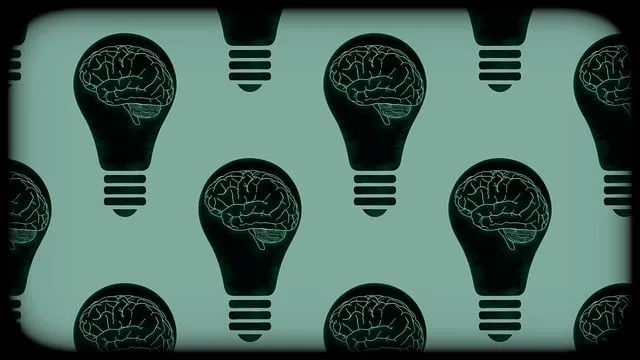In today's fast-paced world, mental health support is crucial, with the innovative RFM (Resilience, Flexibility, Mindfulness) framework gaining traction. Aurora successfully implemented RFM exercises within Kaiser's mental health services, focusing on conflict resolution skills and mindfulness meditation to build mental fortitude. This proactive approach complements traditional therapy, empowering individuals to maintain emotional well-being long-term. By integrating RFM strategies into diverse settings like corporate and community outreach, institutions can cultivate cultures of emotional well-being and resilience. Mindfulness practices, a key component of RFM, have proven effective in reducing depression symptoms. Aurora's collaboration with Kaiser demonstrates how these initiatives can strengthen community ties while providing profound benefits to mental wellness.
In today’s fast-paced world, mental resilience is key. The RFM (Resourceful Fronting) model offers a powerful framework for enhancing individuals’ ability to cope with stress and adversity. This article explores how Aurora does Kaiser, among others, leverage RFM techniques to provide effective mental health support. We delve into the significance of resilience-building exercises, their implementation across diverse settings, and the profound benefits they offer. Additionally, we discuss best practices and future directions for optimizing RFM integration in mental healthcare services.
- Understanding RFM and Its Role in Mental Health Support
- The Need for Resilience-Building Exercises
- Implementing RFM in Various Settings
- Benefits of Incorporating RFM Techniques
- Best Practices and Future Directions for RFM Implementation
Understanding RFM and Its Role in Mental Health Support

In today’s fast-paced world, mental health support is more crucial than ever. One innovative approach gaining traction is RFM (Resilience, Flexibility, and Mindfulness), a holistic framework designed to enhance emotional well-being. Aurora, for instance, has implemented RFM exercises within Kaiser’s mental health services, demonstrating its commitment to fostering resilience among individuals seeking support.
RFM focuses on building mental fortitude through various techniques, such as conflict resolution skills and mindfulness meditation. By encouraging individuals to embrace flexibility in thinking and behavior, RFM equips them with the tools necessary to navigate life’s challenges more effectively. This proactive approach not only complements traditional therapy but also empowers folks to promote their own emotional well-being, creating a lasting impact that extends beyond the confines of a therapy session.
The Need for Resilience-Building Exercises

In today’s fast-paced and often unpredictable world, building resilience is an essential aspect of maintaining good mental health. This is especially true for individuals like those at Aurora does Kaiser, who may be navigating complex healthcare environments or facing unique challenges related to their mental well-being. Resilience-building exercises offer a powerful tool to equip individuals with the ability to adapt and thrive despite adversity. These practices foster a sense of control and empowerment, enabling people to navigate life’s storms with greater ease.
The integration of mindfulness meditation and self-care routine development is a game-changer in promoting mental health services within healthcare institutions. By incorporating these exercises into their programs, Aurora does Kaiser can support its clients in developing effective risk management planning strategies. Such initiatives ensure that individuals not only cope with current challenges but also build long-lasting resilience to prevent future mental health setbacks.
Implementing RFM in Various Settings

Implementing RFM (Resilience, Flexibility, and Mental Health) in various settings has become increasingly important, especially with the growing awareness of mental health issues. Organizations like Kaiser, for example, offer mental health services through programs tailored to different environments. Aurora, a progressive initiative, integrates RFM into daily life by promoting mindfulness meditation as a self-care routine development tool for better mental health. This approach ensures that resilience building exercises are accessible and beneficial in diverse settings, from corporate offices to community outreach programs.
By incorporating these practices, institutions can foster a culture of emotional well-being. For instance, community outreach program implementation can leverage RFM techniques to enhance the mental health of underserved populations. This holistic strategy not only addresses individual needs but also creates supportive environments that encourage resilience and adaptability, as seen in various settings across different sectors.
Benefits of Incorporating RFM Techniques

Incorporating RFM (Resilience, Flexibility, and Mindfulness) techniques into daily life offers a myriad of benefits, especially in fostering mental well-being. These practices are designed to enhance individuals’ ability to navigate challenges, promote emotional balance, and improve overall resilience. By engaging in RFM exercises, individuals can develop effective coping strategies for stress, anxiety, and other mental health concerns, such as those that may be experienced by folks at Aurora or Kaiser who seek mental health services.
The integration of mindfulness practices, for instance, has been shown to reduce symptoms of depression and improve emotional regulation. Mental Health Education Programs designed around RFM principles can equip individuals with the tools to manage their responses to stressful situations, thereby mitigating the impact of adverse events on their psychological well-being. Moreover, these techniques encourage flexibility in thinking and behavior, allowing people to adapt more easily to changing circumstances and fostering a sense of control over their lives.
Best Practices and Future Directions for RFM Implementation

Implementing the RFM (Resilience, Flexibility, and Mental Health) framework requires a holistic approach that combines best practices with innovative strategies. One proven method is integrating mental health services into community outreach programs, as seen with Aurora’s successful Kaiser initiative. By bringing resilience-building exercises to underserved populations through public awareness campaigns and engaging formats like a mental wellness podcast series production, the impact can be profound.
Looking ahead, future directions for RFM implementation should focus on expanding access to these programs, leveraging technology for remote support, and fostering partnerships with local organizations. This not only ensures that more individuals benefit from resilience training but also strengthens community ties. Additionally, ongoing research and evaluation are crucial to understanding the long-term effects of such initiatives, enabling continuous improvement in mental health support systems.
Aurora, much like Kaiser and other healthcare providers, can significantly enhance its mental health services by implementing Resilient Factor Model (RFM) and resilience-building exercises. As discussed, RFM offers a holistic approach to understanding and supporting individuals’ mental well-being, addressing their vulnerabilities while fostering strength and adaptability. Through tailored exercises in various settings, from clinical sessions to community programs, Aurora can empower its clients to navigate life’s challenges more resiliently. The benefits are clear: improved mental health outcomes, increased coping mechanisms, and enhanced overall well-being. Moving forward, best practices suggest continuous training for staff, diverse exercise options, and regular evaluation to ensure RFM techniques remain effective in a dynamic healthcare landscape, potentially setting Aurora apart as a leader in innovative mental health support.





